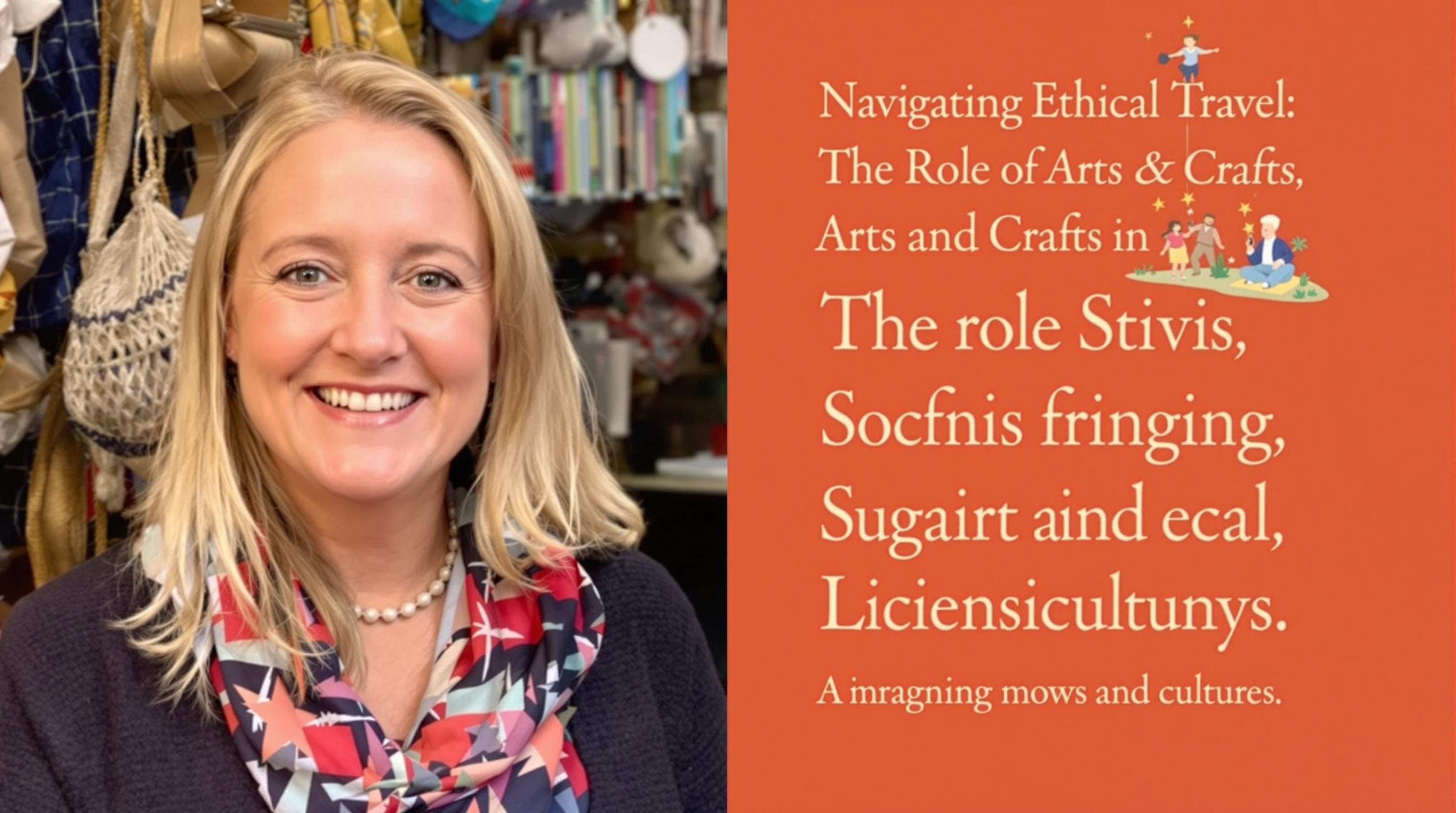Related Articles
- Navigating Ethical Travel: The Role of Arts and Crafts in Supporting Local Economies and Cultures
- Rediscovering Ancestral Routes: How Ancient Trails Offer Insights into Sustainable Travel Practices
- The Ethical Dilemma of Luxury Travel: Splurging or Supporting Sustainable Development?
- Navigating Ethical Dilemmas: The Quest for Authenticity in Local Food Experiences While Traveling
- Beyond the Facade: Exploring the Subsurface Infrastructure of Iconic Historical Structures
- Curiosities Unearthed: The Surprising Connections Between Historic Sites and Modern Art Movements
Navigating Ethical Travel: The Role of Arts and Crafts in Supporting Local Economies and Cultures
Navigating Ethical Travel: The Role of Arts and Crafts in Supporting Local Economies and Cultures
In an increasingly globalized world, ethical travel is more crucial than ever, particularly how it influences local economies through arts and crafts. By embracing local artisans and their work, travelers not only foster cultural exchange but also contribute to sustainable livelihoods and the preservation of unique traditions.
The Importance of Supporting Local Artisans
When we travel, we often think of our experiences in terms of Instagram-worthy brunch spots or adventure-filled excursions. However, according to the World Bank, tourism can contribute significantly to local economies, generating up to 30% of the GDP in some developing nations. Yet, the impact of our spending often evaporates if we don’t channel our support toward local artisans.
Understanding Ethical Travel
So, what does “ethical travel” mean? At its core, ethical travel is about making conscious choices that respect and benefit the communities we visit. This can mean choosing eco-friendly accommodations, participating in cultural exchanges, and, crucially, supporting local craftspeople. By purchasing a handwoven rug directly from the weaver in Morocco rather than at a generic gift shop, travelers help preserve traditional skills and economic stability.
A Case Study: The Impact of Crafts on Cambodian Villages
Take Cambodia, for example; art forms like silk weaving are not merely crafts; they are lifelines for many rural communities. In an effort to rejuvenate the silk-weaving industry, initiatives such as “Artisans Angkor” are promoting sustainable tourism by connecting artisans with responsible tourists. This organization helps local artisans achieve an income that can exceed $150 a month, significantly lifting their families out of poverty. Ethical travel doesn't just sustain local economies; it fosters both hope and resilience.
Traveling with Purpose
Now, let’s dive into some practical tips on how to travel with purpose through the arts. First, embrace the local cultures by participating in artisan-led workshops. For instance, many regions offer hands-on experiences, like pottery or weaving classes, that allow tourists to learn directly from the masters. Not only do you leave with a unique souvenir, but the fee often goes back into the local economy.
The Transformative Power of Arts
The arts can act as a bridge between cultures. They allow us to share stories, values, and worldviews. An exploratory traveler might find themselves enthralled by Pacific Islander art, appreciating its deep connection to nature and tradition. Through local art, one understands the narrative of a people, fostering respect and mutual appreciation.
Statistics That Speak Volumes
According to a study conducted by National Geographic, 83% of travelers believe it’s important to support local economies through cultural tourism. Yet, only half reported actively seeking out local experiences. This discrepancy highlights the vital role of education in ethical travel — and why travelers need to be more informed about their choices.
Humor in Cultural Misunderstanding
Speaking of education, let’s not forget the laughs that come with cultural misunderstandings. Picture a tourist trying to mimic a local dance move, only to find that they’re, in fact, performing a traditional ritual. As funny as it can be, humor often breaks down barriers. Local artisans may share a chuckle, explaining the significance behind their crafts, and turning a potentially awkward moment into cultural dialogue.
Connecting through Stories
Every art piece tells a story. As a 25-year-old writer, I’ve found that the most memorable travel experiences often don’t come from the tallest mountains or grandest attractions but from listening to artisans narrate their histories. Sitting in a small workshop, I once learned about the intricate process of batik painting in Indonesia. The woman behind the canvas spoke passionately about her grandmother's techniques, making the fabric not just an item but a piece of her heritage. By investing in local art, we invest in their stories.
Ethical Travel and Environmental Sustainability
Sustainable travel goes hand in hand with ethical travel. The ever-increasing demand for various Waimea ceramics has led to over-extraction of clay from nature, presenting an urgent problem for not just artisans but the environment as well. By choosing to purchase responsibly sourced materials, travelers can ensure they are not contributing to harm. Crafting relationships with local artisans can help travelers understand the story behind their materials—why it matters and how they can help protect them.
Challenges Facing Local Craftspeople
Even in the world of arts and crafts, challenges abound. Many artisans struggle against mass-produced imitations and might find it harder to compete in the global marketplace. A report by UNESCO shows that around 30% of traditional crafts are at risk of vanishing. This sobering statistic emphasizes the critical role travelers play in sustaining these crucial cultural markers.
Conclusion: Forging Meaningful Connections
As ethical travelers, we have the incredible power to forge lasting connections with the cultures we encounter. Supporting local artisans is not just about purchasing souvenirs; it's about embracing shared humanity. The next time you find yourself drawn to a handmade item, consider its deeper significance. Celebrate connection, preserve culture, and uplift communities, one craft at a time.
So, the next time you're packing your bags for an adventure, ask yourself: how can I travel ethically? Can I directly support a local artisan? Can I immerse myself in a culture rather than skim over its surface? Pack your sense of adventure, but also your sense of responsibility, and embark on a journey that values people as much as places.





